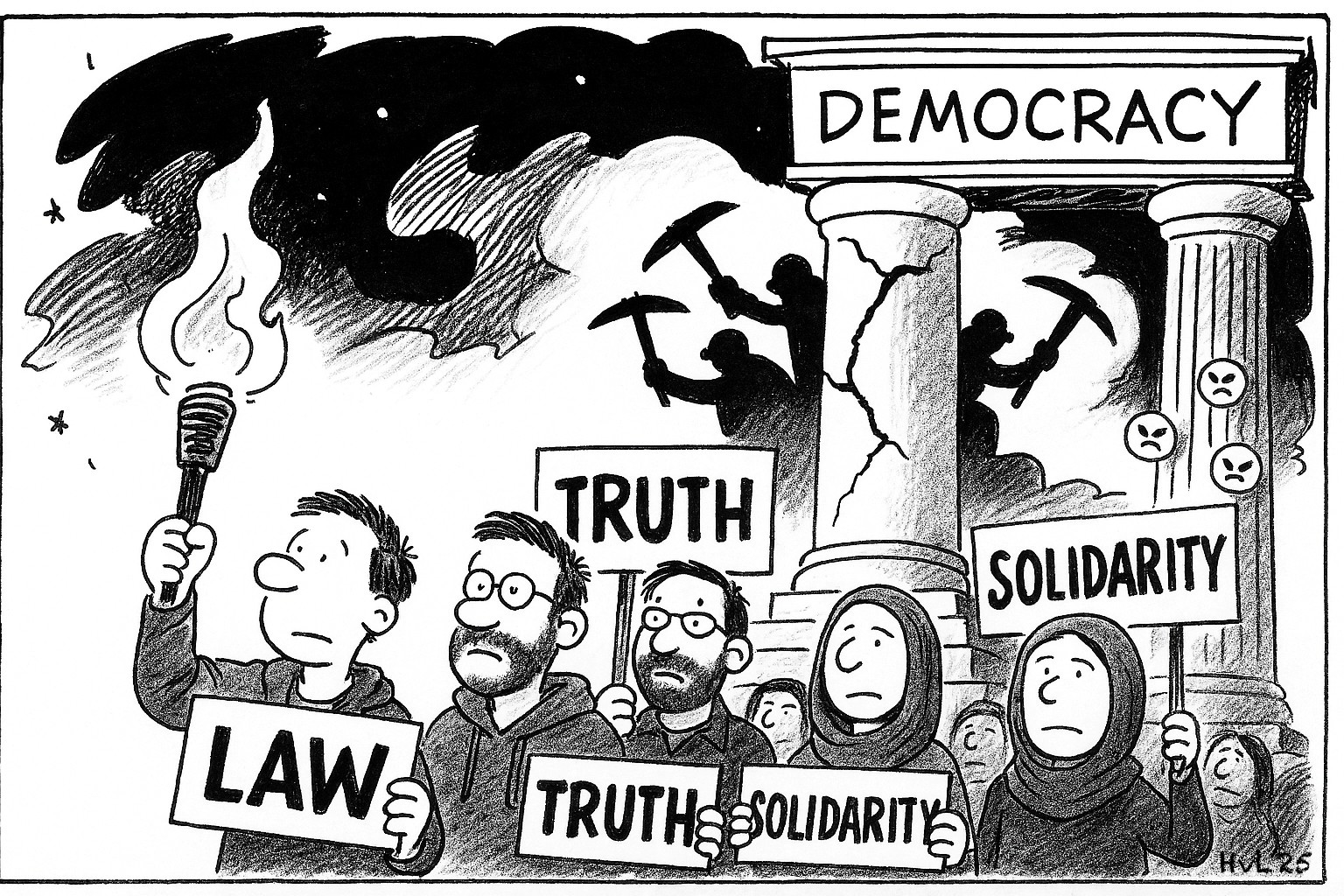 Across continents, a wave of right-wing populism is reshaping political landscapes. From Viktor Orbán’s Hungary to Narendra Modi’s India, and most prominently in the United States under Donald Trump’s renewed leadership, the democratic experiment faces a test not of strength, but of endurance.
Across continents, a wave of right-wing populism is reshaping political landscapes. From Viktor Orbán’s Hungary to Narendra Modi’s India, and most prominently in the United States under Donald Trump’s renewed leadership, the democratic experiment faces a test not of strength, but of endurance.
The tactics are familiar: emotional slogans, scapegoating, media vilification, and the slow corrosion of institutional norms. For historians, these patterns evoke uncomfortable parallels with the rise of authoritarian regimes in the 20th century, particularly the propaganda machinery of Joseph Goebbels, whose mastery of mass persuasion helped pave the way for one of history’s darkest chapters.But this is not a story of equivalence. It is a story of warning.
The Playbook of Power
Goebbels believed propaganda should be simple, emotional, and endlessly repeated. Trump’s slogans; “Make America Great Again,” “Fake News,” “Stop the Steal”, are not just political branding. They are instruments of identity, grievance, and loyalty.
“Authoritarianism doesn’t arrive with tanks. It arrives with slogans,” says Ruth Ben-Ghiat, historian and author of Strongmen: Mussolini to the Present. “It builds slowly, through the erosion of trust and the normalization of lies.”
Both Goebbels and Trump understood the power of repetition. Both weaponized media, Goebbels through control, Trump through delegitimization. Both created enemies, internal and external, to galvanize support and justify extraordinary measures.
Democracy’s Defense: What Can Be Done
The rise of authoritarian populism is not inevitable. But resisting it requires more than outrage, it requires strategy.
Institutional Fortification
Democracies must codify norms that were once assumed. Judicial independence, electoral integrity, and legislative transparency must be protected not just by tradition, but by law.
“Democracy does not collapse overnight. It erodes gradually, and then suddenly,” warns the Center for American Progress. “Legal reinforcement is essential.”
Media Literacy and Civic Education
In an age of disinformation, citizens must be equipped to discern truth from manipulation. Schools, universities, and public institutions must prioritize critical thinking and media literacy.
Protecting the Vote
Access to voting is the cornerstone of democracy. As voter suppression tactics evolve, so must protections, through legislation, oversight, and public vigilance.
“The reforms we propose are ambitious,” writes Citizens for Responsibility and Ethics in Washington (CREW), “but only scratch the surface of the work needed to resist authoritarianism.”
Coalition Building
Opposition must be broad, inclusive, and strategic. Identity politics, while powerful, can fracture resistance. Economic messaging and shared democratic values must form the foundation of coalitions.
“Autocracy takes time,” writes Asli Aydintasbas, a fellow at Brookings. “Even the most determined strongmen face internal hurdles, from the bureaucracy to the media and the courts.”
The Global Pattern
Trump is not an anomaly. He is part of a global trend, one that exploits economic anxiety, cultural nostalgia, and institutional fatigue. The danger lies not in the strength of these movements, but in the complacency of their opposition.
From Bolsonaro’s Brazil to Meloni’s Italy, the right-wing surge is not just political, it is psychological. It offers certainty in uncertain times, identity in a fragmented world, and power to those who feel powerless.
The Fragile FutureDemocracy is not a guarantee. It is a practice, a daily commitment to truth, inclusion, and accountability. The lessons of history are not just academic. They are urgent.
“The answer to political defeat is not to disconnect, but to organize,” Aydintasbas reminds us.
As the world tilts toward authoritarianism, the question is not whether democracy can survive. The question is whether we will fight for it.